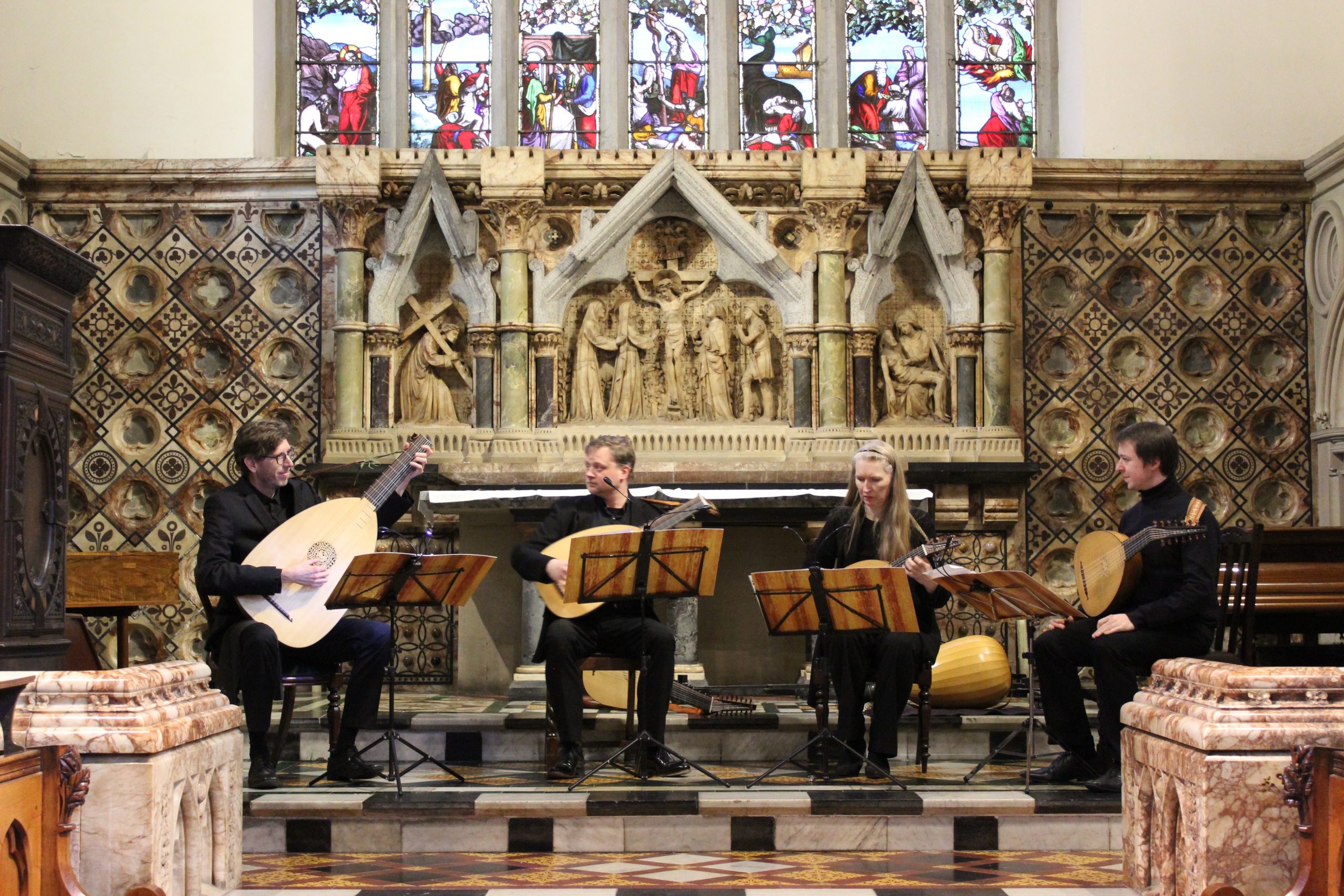The largest surviving corpus of music for an ensemble of lutes comes from the historical city of Antwerp, and this is largely thanks to the influence of just two people: the music publisher Phalesius and the lute player and first significant composer of lute music in the Low Countries, Emanuel Adriaenssen (c. 1550-1604).
In fact, Phalesius’ publishing house printed 1,000 pieces of lute music, including dozens of lute duets, the only full publication for three lutes (by the Italian Giovanni Pacoloni) and a few trios and quartets by Adriaenssen. Together, these works require lutes in five different sizes. Phalesius senior (1510-1573) was born and worked in Leuven, but he engaged in a partnership with Jan Bellerus from Antwerp in 1570. Phalesius’ son, Petrus II (c. 1545-1629), then moved the entire business to Antwerp. He is buried in St. Augustine’s Church, where AMUZ is based.
Phalesius printed the lute player Emanuel Adriaenssen’s very first publication: Pratum musicum, from 1584, with arrangements of vocal music for two, three and four lutes. Adriaenssen spent most of his life in Antwerp and is buried in St. James’ Church. He ran a lute school with his brother Gysbrecht. He is mentioned in publications on the lute until far into the 18th century.
As well as these important figures, there is work by another Antwerp native and lute player, Joachim van den Hove, and the most important composer of lute quartets, the Frenchman Nicolas Vallet.
Allow yourself to be transported into the flourishing historical culture of lute ensembles!
Performers
Richard MacKenzie, alto, tenor & bassetto lutes | Arngeir Hauksson, tenor lute & cittern | Matthew Nisbet, tenor & bass lutes | Lynda Sayce, descant & alto lutes; artistic leader



